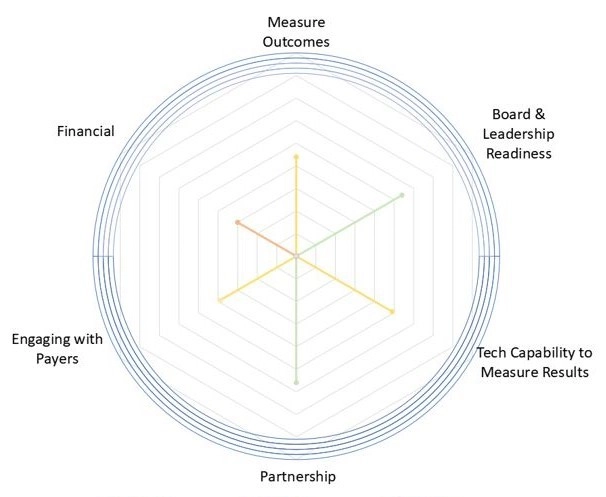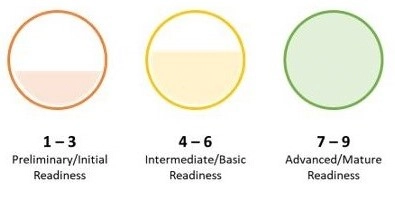Opportunities related to Certified Community Behavioral Health Clinics (CCBHCs) continue to expand for both states and providers. With this increased investment in the model comes the need for continued refinement and improvement. CCBHCs enable government and other payors and providers to increase capacity and move towards a transformed behavioral health system that is responsive to local community needs. This article summarizes a number of new developments that will impact CCBHCs, including a few opportunities for expansion that you may not want to miss.
Background
CCBHCs provide integrated and coordinated community-based care for individuals across the lifespan who are living with and/or at risk for behavioral health conditions. The model is designed to increase access to behavioral health services; provide a comprehensive range of services, including crisis services, that respond to local needs; incorporate evidence-based practices; and establish care coordination as a linchpin for service delivery. To date, CCBHCs have demonstrated positive outcomes, such as: [i]
- Significant reductions in client hospitalizations
- Increased access to high quality community-based care, including services like Medication Assisted Treatment and care coordination
- Mitigation of the challenges related to the national health care workforce shortage
- Innovative and strengthened partnerships with cross-system partners, such as law enforcement, schools, and hospitals
SAMHSA CCBHC Demonstration Grant Opportunity Releases for States
Earlier this month, SAMHSA released its CCBHC Demonstration Program opportunity for states who currently or have previously held a CCBHC Planning Grant. The Demonstration RFP (request for proposals) will allow selected states to initiate a CCBHC Demonstration Program starting on July 1, 2024. In 2016, Minnesota, Missouri, Nevada, New Jersey, New York, Oklahoma, Oregon, and Pennsylvania were selected by the U.S. Department of Health and Human Services (HHS) to participate in the initial CCBHC Demonstration Program. In August 2020, Kentucky and Michigan were selected as two new CCBHC Demonstration States through the Coronavirus Aid, Relief, and Economic Security Act (P.L. 116-136). Through this most recent 2024 CCBHC Demonstration opportunity, SAMHSA will select up to 10 additional states to participate in the CCBHC Demonstration, as outlined by the Bipartisan Safer Communities Act of 2022 (P.L. 117-259).
For those interested in this RFP:
- Eligibility: States selected for the 2016 or 2023 CCBHC Planning Grant (that are not currently participating in the Demonstration Program) are eligible to apply for this RFP.
- Due Date: Applications are due March 20, 2024, at 11:59pm EST and must be submitted by email to [email protected]. Awarded states will be announced in June 2024.
- Evaluation Criteria: As outlined in the Protecting Access to Medicare Act (PAMA) of 2014, state applications will be scored on their ability to:
- Provide the most complete scope of services
- Improve availability of, access to, and participation in, CCBHC services
- Improve availability of, access to, and participation in assisted outpatient mental health treatment in the state
- Demonstrate the potential to expand available mental health services in a demonstration area and increase the quality of such services without increasing net federal spending
For additional context and background on this opportunity, HMA and the National Council hosted a webinar on October 6, 2022, on “Developing a Strategy for the CCBHC State Demonstration RFP.” During this webinar, we engaged representatives from New York and Michigan to share information about their demonstration program implementation to date.
Other CCBHC Updates of Note
In addition to this state Demonstration RFP, there have been several recent updates to CCBHC-related guidance documents that are worth noting for anyone who is currently participating and/or interested in the CCBHC model:
Updates to the Prospective Payment System (PPS) Guidance
Under the state CCBHC Demonstration Program, CCBHCs are paid a daily or monthly Prospective Payment System (PPS) rate. In 2023, in preparation for issuing an updated guidance, CMS held a forum for states, providers, and other stakeholder input on newly proposed PPS changes. In February 2024, the updated PPS Guidance was released, reflecting gathered feedback incorporating payment flexibilities and alignment with revisions to the CCBHC criteria. One major change was the addition of two PPS options for states, which addresses the high-cost and specialized care delivered through mobile and on-site crisis intervention services provided directly to individuals. Specifically:
- PPS-3 offers states the option to reimburse CCBHCs on a daily basis, including daily Special Crisis Services rates, which allow states to set separate PPS rates for crisis services provided by CCBHCs.
- PPS-4 offers states the option to reimburse CCBHCs on a monthly basis, including monthly Special Crisis Services rates. Quality Bonus Payments are also required under this PPS-4 structure.
Additionally, the metrics for Quality Bonus Payments (which are required as part of the PPS-2 and PPS-4 monthly rate structures and optional for the PPS-1 and PPS-3 daily rate structures) have been modified to align with the revised CCBHC Quality Metrics. Additionally, CMS added new guidance related to payments to CCBHCs that are also certified as FQHCs (Federally Qualified Health Centers) and other provider types operating within the Medicaid program.
Overall, this updated PPS Guidance is effective on or after January 1, 2024 for existing CCBHC Demonstration States and on or after July 1, 2024 for newly selected states added to the program under the above CCBHC Demonstration Program RFP.
CCBHC Quality Metrics: Final Specifications Released
Further, when SAMHSA revised the CCBHC criteria in March of last year, they also updated the required and optional quality measures for both CCBHC providers and states operating a Demonstration program. The revised guidance specifies that all CCBHCs, including those participating in a State Demonstration Program as well as providers funded by a SAMHSA CCBHC Grant, must begin collecting and reporting on the required provider-specific measures starting in calendar year 2025. Similarly, states participating in the CCBHC Demonstration Program must transition to reporting on the new state-specific measures as well, with their first measurement year for the new measures running from January 1, 2025 – December 31, 2025.
Earlier this month, SAMHSA released the final specifications for each of the required and optional CCBHC quality measures. Providers and states alike are currently working hard to prepare their quality processes and systems to report on these new measures. With the inclusion of SAMHSA-funded CCBHCs in these quality measure reporting requirements, the hope is that the expanded data will assist us all in better understanding the impact of the CCBHC initiative as it relates to access to care and outcomes.
Guidance for States on CCBHC Criteria Customizations
Finally, SAMHSA recently released updated guidance for states looking to customize the federal CCBHC criteria as part of their CCBHC Demonstration Programs, to align with updates they made to the federal criteria in March of 2023. The guidance outlines, for a variety of criteria, how states may add or customize the requirements. Importantly, all CCBHCs operating either under a SAMHSA CCBHC Grant Program or a state-run CCBHC Demonstration Program must meet all of the revised federal CCBHC Criteria on or before July 1, 2024. Building on the federal criteria, many states are strategically taking advantage of customization opportunities to better align the CCBHC model with their system-wide goals and address gaps within their current behavioral health system’s capacity.
Upcoming opportunities for CCBHC expansion
In addition, there are several upcoming opportunities on the horizon for both states and providers looking to enter the CCBHC space.
New CCBHC-Expansion Grants for Behavioral Health Providers
SAMHSA’s Fiscal YeaGr 2024 budget requested $552.5 million for the CCBHC Expansion Program, which is a $167.5 million increase above the FY 2023 enacted level. The CCBHC-Expansion Grant Program includes both “Improvement and Advancement” grants for existing CCBHCs looking to enhance their programs, as well as “Planning, Development, and Implementation” grants for providers looking to establish a new grant-funded CCBHC.
SAMHSA’s FY24 funding will support 360 continuation grants, as well as award a new cohort of 158 grants, and a technical training assistance center grant to continue the improvement of mental disorder treatment, services, and interventions for children and adults. The budget also proposes to establish “an accreditation process [that] would ensure consistent adherence to the CCBHC model and create capacity to confirm adherence to the criteria and the model.”
While the new CCBHC-Expansion Grant RFPs are not currently posted on SAMHSA’s list of projected RFPs, we can expect (based on prior rounds) they are likely to be released sometime in the spring.
Expected Upcoming CCBHC Planning Grant for States
In addition to seeding the selection of a new cohort of 10 states to participate in the CCBHC Demonstration Program starting through the above Demonstration Program RFP and then every two years thereafter, the 2022 Bipartisan Safer Communities Act also earmarked funding for SAMHSA Planning Grants to support states looking to join the Demonstration. For states who are not selected to participate in the CCBHC Demonstration Program starting on July 1, 2024, we expect another CCBHC Planning Grant RFP to be released in the fourth quarter of this calendar year, with another round of 15 Planning Grants to be awarded to selected states in 2025.
States looking to prepare for the next Planning Gant RFP can review HMA’s summary of the most recent Planning Grant opportunity and watch HMA’s webinar co-hosted with the National Council for Mental Wellbeing that provides an overview of the previous RFP.
Interested in Learning More?
Reach out to our experts! HMA offers a deeply informed yet neutral perspective on CCBHC development, with team members who specialize in operations, quality, and fiscal components of the CCBHC model. We have helped 17 states successfully write their CCBHC Planning Grant applications, and in 2023 alone, we helped behavioral health providers secure approximately $80 million in expansion grant funding they are using to support their communities. Our team of experts brings extensive experience supporting both states and providers to leverage the CCBHC model to support their overall system transformation goals.
Click here to learn more about our work with CCBHCs or contact our featured experts.
[i] https://www.thenationalcouncil.org/wp-content/uploads/2022/06/22.06.06_HillDayAtHome_CCBHC_FactSheets.pdf






